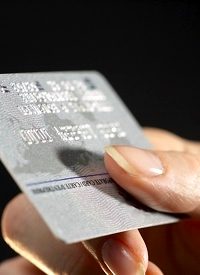
Draft legislation drawn up by the Treasury Department and expected to be hustled through both houses of Congress on the strength of the Democrats’ new veto-proof majority in the Senate would create a Consumer Financial Protection Agency, a one-size-fits-all bureaucracy tasked with writing rules (read: legislating from the executive branch) to govern, control, restrict, and otherwise restrain all market activity in the financial services sector.
This latest new platform for employing taxpayer-funded bureaucrats will have authority, including subpoena power, over credit card companies, the mortgage industry, and financial firms generally — this on top of the already onerous and unconstitutional Securities and Exchange Commission and its web of regulations that have done little besides distort the workings of the free market, as such bureaucratic interference always must.
“This [new] agency will have only one mission — to protect consumers,” Treasury Secretary Timothy Geithner said. That, of course, is the rationale behind every act of government regulatory interference in the workings of the free market. What men like President Barack Obama and Secretary Geithner willfully ignore is that the free market is the best protection for consumers, because it will reward thrift and efficiency, punish improvidence, and encourage transparency far more effectively than any micromanaging bureaucrat. What’s more, the market will perform these tasks for free, whereas the bureaucrat will demand pay from the very consumers whose interests he is supposedly defending — protection money, as it were. And for those who occasionally succeed in committing fraud, old-fashioned criminal courts and statutes are more than adequate to protect the public weal.
What we will end up with the Consumer Financial Protection Agency is yet another cumbersome, unconstitutional federal bureaucracy stifling fundamental freedoms in the name of consumer protection. “Basically, the government is deciding what every bank in every circumstance should offer,” Ed Yingling, president and chief executive of the American Bankers Association, commented yesterday.
But since it is consumers who ultimately rule the roost in a free-market economy, the government is really deciding what it thinks consumers should and should not have.



